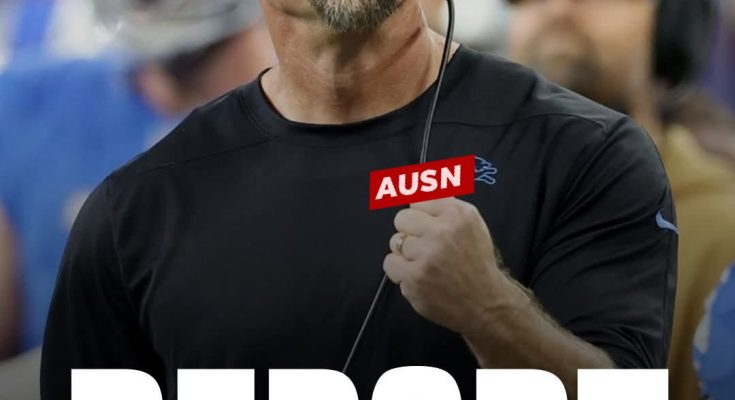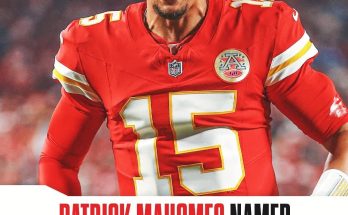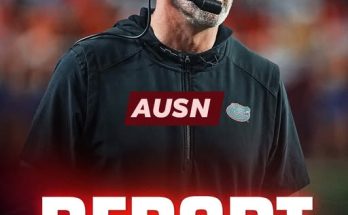In an appearance on the Costa & Jansen show, Detroit Lions head coach Dan Campbell made headlines by reiterating that he was told, by a game official, that “it came from New York” with respect to the reversal of Jared Goff’s touchdown on Detroit’s first drive versus the Kansas City Chiefs. Campbell’s claim effectively accuses the league’s officiating command center — colloquially known as “New York” — of intervening in a non‑reviewable call. He offered that when the Lions sought clarity on the origin of the ruling, an official conveyed that the decision traceable to New York.
That assertion flies in the face of the official narrative. The on‑field referee, Craig Wrolstad, after the game issued a pool report in which he explicitly denied any external assistance: “We did not have any assistance from Kansas City or New York.” Wrolstad maintained that the flag was the result of deliberations among the officiating crew themselves — that they had been “piecing together” whether Goff had paused long enough before his motion to satisfy the rule.
The tension between these versions is significant. The type of penalty assessed — illegal motion in this instance — is not a play eligible for replay review, nor is it supposed to be subject to remote consultation from the league office. Thus, Campbell’s claim, if accurate, suggests a breach of officiating protocol: that the league overrode or influenced a call that should have been solely within the domain of the on-field officials.
Campbell didn’t couch his statement in qualifiers. During the radio show, when asked if an official told him directly that New York made the call, he answered affirmatively: “Yeah.” He added that the Lions had forwarded footage of the play to the league office for review, though he declined to divulge the league’s response publicly
From Campbell’s perspective, his comments amount to a demand for accountability. He has framed the situation as one in which Detroit may have been disadvantaged by intervention beyond the field of play. Several outlets covering the controversy described the implication plainly: if the league did indeed “buzz in” a penalty call for a non-reviewable play, that would strike at the integrity of the officiating structure.
However, the NFL thus far has not issued a public statement conceding Campbell’s version. Instead, it has leaned on Wrolstad’s pool report and declined to elaborate further. Reporters covering the Lions have noted that the league, when asked about Campbell’s claims, responded by saying it had nothing additional beyond the ref’s statement. (Detroit Sports Nation)
The clash between Campbell and Wrolstad has invited sharp scrutiny — and skepticism from observers — because the two accounts are mutually exclusive. Either Campbell is mistaken or misled, or the officiating crew is, or the league is hiding some internal handling. Some analyses in fan circles and local media have described it in blunt terms: in the eyes of many, “somebody is lying.” (Detroit Sports Nation)
It’s worth placing context around the nature of the call itself. The Lions ran a trick play: David Montgomery snapped directly to himself and passed to Jared Goff, who had initially taken a position under center before moving in motion. The penalty was imposed on the basis that, because Goff began the snap under center, he was required to pause for one full second before initiating motion. The officials determined he did not do so, nullifying the touchdown. (Pride Of Detroit)
Campbell, while frustrated by the call, has also publicly accepted responsibility for the confusion. He conceded after the game that the players executed exactly what the coaches had told them to do, and that he should have clarified their alignment and timing more precisely. (SI) Goff, similarly, expressed confusion over the rule; his impression had been that simply aligning with hands under center and then moving would suffice, unaware of the nuance the officials applied. (SI)
From a procedural standpoint, the league’s officiating framework allows the command center to assist with certain reviewable situations — for example, scoring plays, turnovers, or clock issues — but under standard rules, it is not supposed to weigh in on ordinary penalties or intervene in non-challengeable calls. Campbell’s allegation, therefore, questions whether the line that divides on-field discretion and command center intervention was crossed.
The uncertainty and lack of transparency have fueled frustration among Lions fans and neutral observers alike. Several local columns have called for the NFL to publicly clarify what occurred — whether any communication did flow from New York, whether it influenced the decision, and why the league is not being more forthcoming. (Detroit Sports Nation) Some critics argue that even if the correction in motion was legally sound, the process must be transparent to maintain trust in officiating.
On the flip side, defenders of the league’s stance highlight that Wrolstad is on the record denying external input, and that admitting otherwise would undermine confidence in the officiating apparatus. The league may be reluctant to open that door, which might explain its decision to remain mostly silent beyond the official report. Nation)
Ultimately, Campbell’s remarks on Costa & Jansen represent a public challenge by a head coach to the officiating process itself — not merely to a single call, but to the system’s integrity. His insistence that an on-field official told him the reversal “came from New York” raises a serious question about whether the league intervened improperly. Until the NFL responds with clarity — beyond “we stand by the referee’s report” — the controversy is likely to linger, and the public will continue to wonder which version of events is accurate, and what hidden precedents might exist behind the scenes in the NFL’s rule enforcement.


